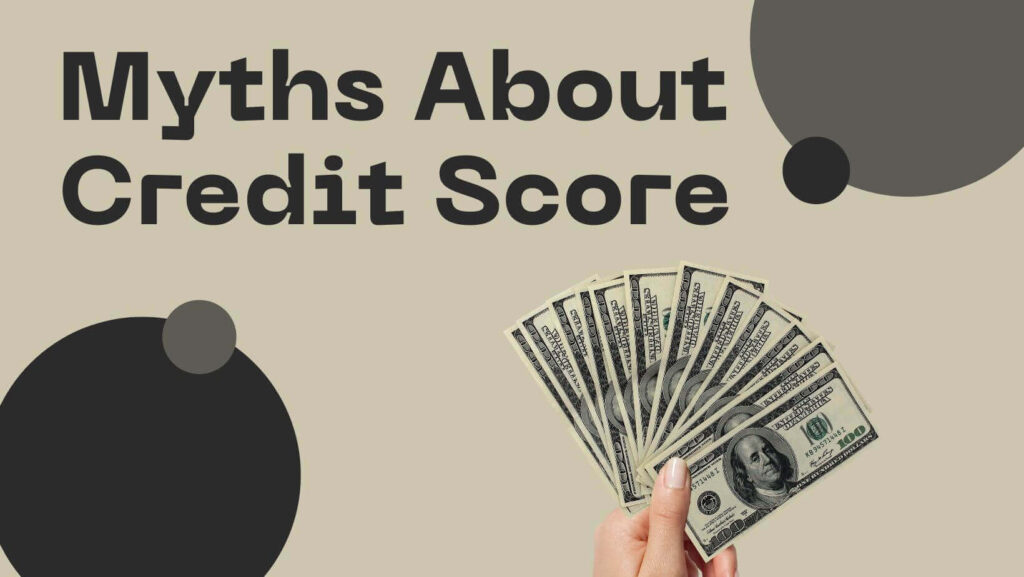A strong credit score is essential for evaluating one’s financial well-being in today’s money-driven world. However, there are numerous myths and misconceptions concerning credit ratings, which influence people’s decisions and unintentionally lower their creditworthiness. To help people maintain or raise their credit scores, it is essential to dispel these beliefs and provide factual information because they frequently result from ignorance or disinformation.
Myth 1: Having your credit score checked can lower it
There is a widespread misconception that monitoring your credit report will harm it. There is no way that this is true. It’s a “soft inquiry” when you check your own credit report; it has no effect on your score. Only when lenders conduct a “hard inquiry” to determine your loan eligibility could there be a slight, brief decline in your credit score. A wise financial habit that enables you to spot mistakes and track your progress is routinely keeping an eye on your credit score.
Myth 2: Having a little balance increases your score
Contrary to popular assumption, having a small balance on your card doesn’t always result in better credit. Yes, maintaining proper credit utilization—keeping your credit card balances below your credit limits—helps your score. Nevertheless, holding a sum past due might result in interest fees and added stress. It is more important than ever to pay your credit card payments in full and on time to keep your credit score in good standing.
Myth 3: A credit card’s impact is removed when it is closed
Even when you close a credit card, the effects on your credit history remain. The closed account’s favorable information, like on-time payments and a low credit utilization percentage, stays on your credit report for a number of years. However, the account will eventually be deleted, which could significantly affect your score if it was a well-managed account. Additionally, cancelling a credit card might reduce your overall credit limit, which might have an impact on your credit utilization ratio.
Myth 4: All Debts Are Equal
When it comes to credit scores, not all debts are regarded the same. Revolving accounts, such as installment loans and credit cards, are assessed in various ways. Due to the potential for abuse, credit cards often receive a higher weight when calculating credit scores. To keep your credit score in good shape, concentrate on paying off high-interest credit card debt and making regular payments on installment loans.
Myth 5: Your credit score only depends on your income
Although your salary doesn’t directly affect your credit score, it can have an indirect impact on your capacity to appropriately handle credit. When determining your ability to pay back debt, lenders take into account your income, but your payment history, credit utilization, credit mix, and length of credit history are the main variables that affect your credit score. A history of missed payments or excessive credit card debt cannot be made up for by a high income.
Myth 6: Bankruptcy instantly wipes the slate clean
The effects of bankruptcy can be felt strongly in your financial situation and credit rating. It’s a myth that filing for bankruptcy clears your credit history. A bankruptcy filing can cause a significant decline in your credit score and is recorded on your credit report for years. While it is possible to recover credit after bankruptcy, it takes time, sound financial practices, and a conscious effort to increase your trustworthiness.
Dispelling these credit score myths is critical in a world where financial knowledge is essential. For people to make wise financial decisions that enhance their creditworthiness, they require correct information. A solid credit score can be attained and maintained by regularly reviewing your credit report for inaccuracies, paying bills on time, keeping credit card balances low, and comprehending the complexities of credit utilization.
In conclusion, it is essential to grasp the nuances of credit ratings in order to make wise financial decisions. By dispelling misconceptions about credit scores, people can gain the confidence they need to take charge of their financial future. By distinguishing fact from fiction, people may confidently navigate the complicated world of credit ratings, guaranteeing a secure and fruitful financial path.



